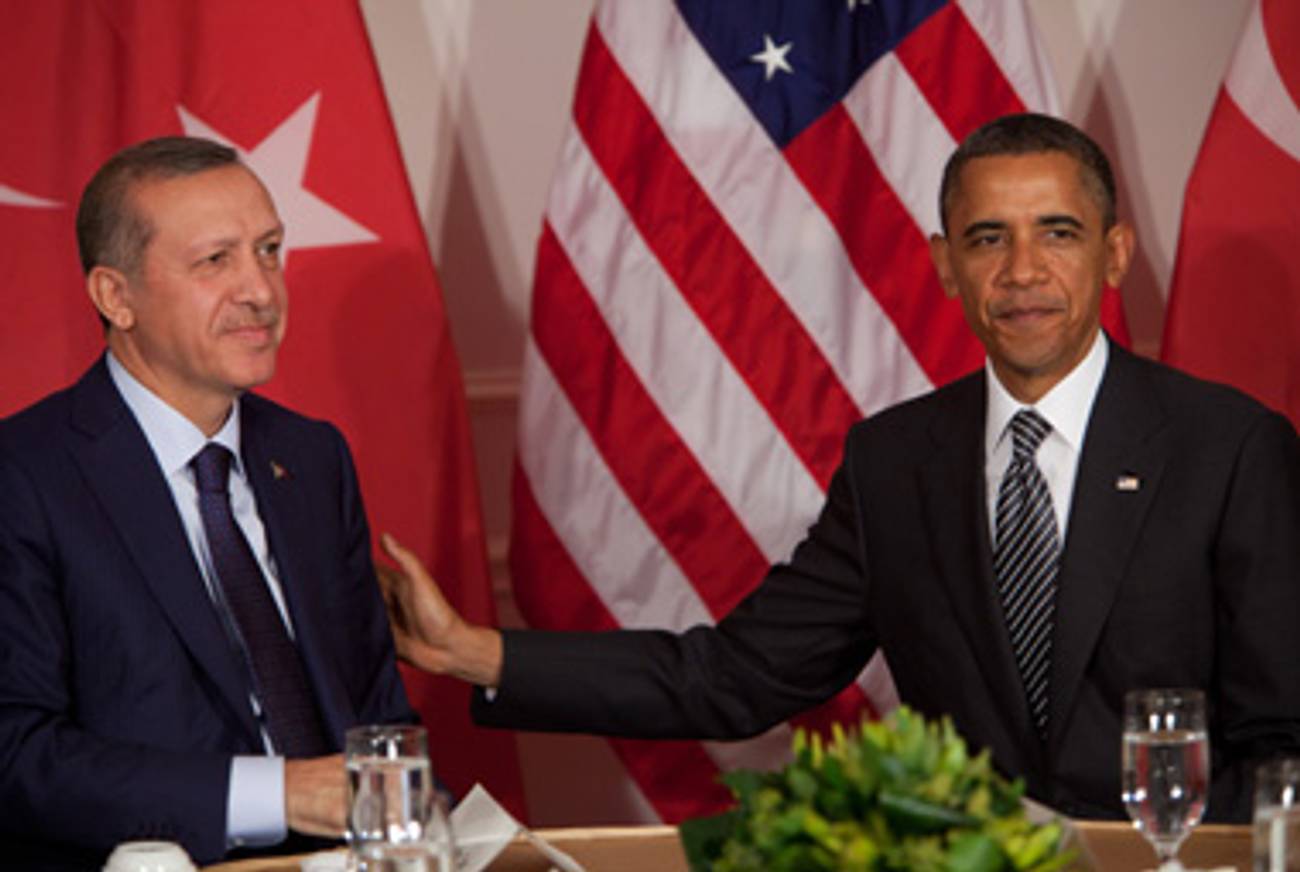U.S. Should Pressure Turkey on Israel
Frayed relations could perhaps be restored with appeal to interests, Syria




Tensions in the Israel-Turkey relationship are now leaving at least one Israeli defense firm in a tricky position with Boeing, the U.S. defense giant. It’s just the latest example of how the unraveling of what was once a strong alliance—for much of the past few decades, Turkey was Israel’s closest friend in the Muslim world—has harmed Israeli interests, particularly as the United States has continued to experience a strong relationship with Turkey (in part, ironically enough, over shared interest in checking Iran).
The complicating factor here is that while you could certainly point to instances in which Israel has gone out its way to antagonize Turkey (ahem), the deterioration of the relationship is primarily the doing of Turkey and its hugely popular leader, Prime Minister Recep Tayyip Erdogan. Going back to the 2010 flotilla, and perhaps before, and all the way up to the present—this week, Erdogan called the Israeli response to rockets from Gaza “state terror,” “massacre and bloodshed”—Erdogan has viciously demagogued on Israel.
Dexter Filkins published a long article recently in The New Yorker on the growth of Turkey under Erdogan’s moderately Islamist Justice and Development Party. There is much on Ergenekon, Turkey’s rumored, heavily military “deep state,” and the ways in which Erdogan and his allies have used fears of it and prosecutions related to it to solidify their hold on power; it quotes at length Gareth Jenkins, who wrote about the so-called Sledgehammer prosecution for Tablet Magazine. Turkey jails journalists. And so on.
What’s called for is a good deal of private U.S. pressure. Turkey shares a very long border with Syria, whose implosion has strained its relations with Iran as well. It needs powerful friends right now. It is in the U.S. interest if Turkey is more on the same page with the other main U.S. ally that borders Syria, Israel. Filkins’ piece makes clear that while Erdogan is a deeply unappealing, Putin-esque leader, he and his Foreign Minister, the Kissinger-esque Ahmet Davutoglu, are creatures of realism.
President Obama has reportedly cozied up, personally, to Erdogan. That’s not an inherently damning thing—not if it moderates Turkey and eases tensions with Israel. But that’s what needs to start happening then.
Strained Ties With Turkey Hurt Israeli Defense Contract with U.S. Firm [Haaretz]
Turkey’s Erdogan: Israel Must Stop ‘Massacre of Palestinians in Gaza [Haaretz]
Turkey Struggles in the Role of Mideast Power During Syria Crisis [LAT]
Related: The Deep State [New Yorker]
Sledgehammer [Tablet Magazine]
Marc Tracy is a staff writer at The New Republic, and was previously a staff writer at Tablet. He tweets @marcatracy.